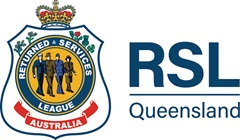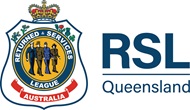
Dealing with anxiety in times of crisis
14 May 2020- ANZACspirit
- Courage
- Endurance
- Health & wellbeing
It’s not unusual to feel anxious when normal life is derailed. But how can we manage those feelings?
COVID-19 has turned the world upside down. Our social and work routines have been disrupted, and we are faced with a deluge of negative news coverage. So it’s not surprising that many of us are feeling more anxious and stressed than normal.
For those of us who suffer from anxiety, however, those very normal feelings can escalate and become problematic. So how can we manage our anxiety during these difficult times?
We spoke with Dr Sarah Hampton, a clinical psychologist and research officer at the Gallipoli Medical Research Foundation, to find out what steps we can take to manage our feelings.
1. Recognise the signs
Sarah says the first step is to recognise the signs of anxiety in your own life. “These might be physical anxiety signs, such as increased heart rate or muscle tension, headaches, feeling a bit uneasy in your tummy, or increased IBS symptoms,” Sarah says. “You might find it really difficult to switch off or wind down at night because you’re worrying or catastrophising about the worst-case scenario. Or you might be watching a lot of COVID-19 media coverage or acting irritable to family members at home. “You might also be exhibiting tension-reducing behaviours such as smoking, drinking alcohol or nail biting.” She says if you can identify with some of these anxiety signs, it’s completely normal and understandable under the current circumstances. But it’s important to practise healthy coping mechanisms so your anxiety doesn’t get the better of you.
2. Look after your physical health
Sarah says it’s important to look after yourself physically by exercising, eating well and getting enough sleep. “Physical exercise is a really effective and natural way to metabolise stress hormones in your body, such as cortisol and adrenaline. So get out every day for a run, a brisk walk or a bicycle ride. “Getting out in the sunshine is a great way to boost your mood and get some vitamin D. It can also stabilise your circadian rhythms, which can promote restful sleep.” She says as well as eating healthily and staying hydrated, you might also want to take up a practice such as tai chi or yoga. “Tai chi and yoga are great ways to promote feelings of calm and relaxation from the comfort of your own living room.”
3. Give your brain a break
The constant Coronavirus coverage can make things seem worse than they really are and increase our anxiety. Sarah recommends simply turning off the TV or avoiding online news sites. “We really only need to know the facts and we can get those from established reputable sources, such as the Australian Government websites and the World Health Organisation,” Sarah says. She says it’s also good to limit conversation about distressing topics. “If we’re always talking about Coronavirus and focussing on the negatives, this can also keep us in a heightened state of anxiety,” Sarah says. “You may need to practise saying something like, ‘How about we talk about something else?’”
If you are still struggling, however, it’s important to reach out for help. Call RSL Queensland’s Veteran Services Team on 134 RSL during business hours. Open Arms has counsellors available 24/7 – you can reach them on 1800 011 046.
Related News
Loading

